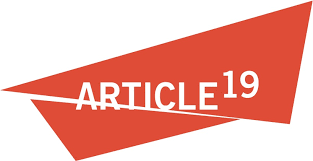Article 19 of the Indian Constitution guarantees six fundamental rights to its citizens, which are as follows:

Table of Contents
Key Provisions
- Right to Freedom of Speech and Expression: This right allows citizens to express their opinions, beliefs, and ideas freely without any fear of censorship or restraint by the government.
- Right to Assemble Peacefully: This right allows citizens to gather together in public places for peaceful purposes, such as holding protests or rallies.
- Right to Form Associations or Unions: This right allows citizens to form associations or unions for any lawful purpose, such as promoting social, economic, or political causes.
- Right to Move Freely: This right allows citizens to move freely throughout the territory of India and to reside in any part of the country.
- Right to Practice Any Profession or Carry on Any Occupation: This right allows citizens to choose their profession or occupation freely and to engage in any lawful business or trade.
- Right to Own Property: This right allows citizens to acquire, hold, and dispose of property, subject to reasonable restrictions imposed by the state for public welfare or national interest.
These fundamental rights are essential for ensuring the democratic and egalitarian principles enshrined in the Indian Constitution, and they provide citizens with the necessary safeguards against arbitrary and unjust actions by the government.
What are the restriction?
| Fundamental Right | Restrictions |
|---|---|
| Freedom of Speech and Expression | Hate speech, defamation, obscenity, and incitement to violence |
| Right to Assemble Peacefully | The government can prohibit gatherings that might lead to a breach of peace or pose a threat to public safety. |
| Right to Form Associations or Unions | The government can prohibit associations or unions that engage in activities that might pose a threat to public safety, national security, or social harmony. |
| Right to Move Freely | The government can impose restrictions on the movement of people in certain areas, such as areas affected by terrorism or communal violence. |
| Right to Practice Any Profession or Carry on Any Occupation | The government can impose reasonable restrictions on certain professions, such as medicine or law, to ensure public safety and professional ethics. |
| Right to Own Property | The government can acquire private property for public purposes, such as building roads or schools, by paying compensation to the owner. |
Article 19 of Indian Constitution During Emergency
During a national emergency declared under Article 352 of the Indian Constitution, the government has the power to suspend or restrict the six fundamental rights guaranteed under Article 19. This means that the government can impose reasonable restrictions on the exercise of these rights, without having to comply with the usual constitutional limitations.
The Constitution empowers the President to proclaim a national emergency if he or she is satisfied that there is a threat to the security of India or a part thereof, either by external aggression or armed rebellion. During such an emergency, the government can suspend the right to move freely and can impose restrictions on the remaining five rights under Article 19.
It is important to note that even during an emergency, the Constitution provides some safeguards against the arbitrary exercise of power by the government. For example, the right to life and personal liberty under Article 20 and Article 21 cannot be suspended, even during an emergency. In addition, the Supreme Court has the power to review any law or action taken by the government during the emergency and can strike it down if it violates the Constitution.
Important Links